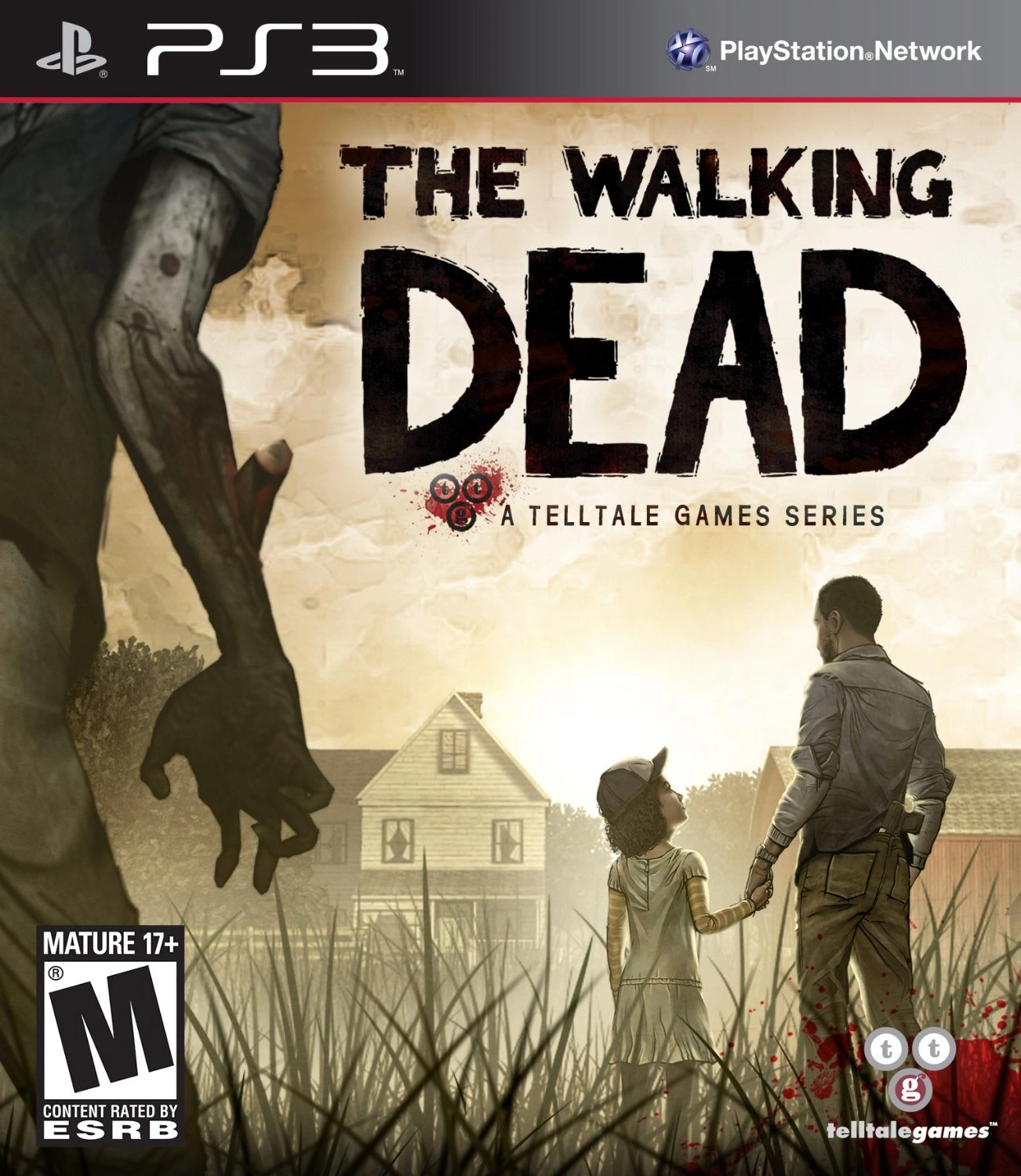With so many series under their belt, it isn't hard to see why some may feel that the Telltale style of game - with it's limited gameplay options - have gotten a little stale. The strength of the games has been and continues to be in their ability to tell a compelling story with interesting characters. Even if you find Tales from Borderlands boring to actually play from a mechanics standpoint, it turned out to be one of the better written and more enjoyable in their repertoire. They clearly still have something to offer players, but it's actually a bit difficult going back and playing their true breakthrough game: The Walking Dead.
The thing about Telltale's first season of their episodic game based off of the Robert Kirkman/Tony Moore/Charlie Adlard comic is that it doesn't ultimately hold much replay value. It's difficult taking a second look at it because you already know what's coming and what your choices ultimately amount to. All you see are the cracks and holes in the writing, and how foolish you were if you actually believed you had any real agency in the game. This is, of course, true of many games. Mass Effect isn't the same when you know what's going to happen, and the choices you make feel less critical by the end of the trilogy. Replays are fundamentally different with all games though, including ones not built on choice. The Last of Us is a great game, but it does lose a bit of its narrative luster on second or third playthroughs. It's to be expect. Same thing happens with movies. You can never experience Star Wars for the first time again.
However, the big difference between Mass Effect and The Walking Dead is that the former at least provides plenty of additional enjoyment. There's action-packed combat, the ability to explore new planets, character and equipment leveling, and more complex and intriguing characters you can converse with. While the end might be the functionally the same each playthrough, there are enough different ways to actually go through and play it that it's still fun to play. The same thing is not exactly true of Telltale's narrative-focused, choice-driven games. Thus, looking back is tricky.
Personally, I was exposed to The Walking Dead's big conceit early on: choices are illusions. One of the very first decisions you are forced to confront is which character to save at the farm. You have a moment to decide between two people - neither of which you're particularly attached to at this point (it's still early) - and in the end, it's irrelevant. The same character dies, regardless of who you choose. You lose points with some people in your party if you help one, but you don't gain points from other people if you help the other. Either way, that character ends up dead and you move on from the farm. (It's not Walking Dead if the characters are constantly finding a place to stay before blowing it and having to migrate, right?)
There could be something to do that if the choice branches truly lead to different points, but they don't. In another moment, you have to decide between another couple of people. Who you pick makes a difference (sort of) for about an episode and a half before, again, that person bites it regardless. Not only that, but they die in the exact same spot and exact same manner.
That's ultimately the issue with these games. Unless your choices branch off into noticeably different and varying paths, then they don't feel like they mean anything. You can typically compensate for that in bigger games by including fun gameplay or exploration options. With a game like The Walking Dead, there isn't any real gameplay or exploration. Sure, you can kind of walk around an area and look at certain objects, but that's extremely limited. The conversations you can have are interesting, but equally limited. There just isn't much that can make up for the dead-end branches.
Funny thing about choice-based games too is that there's almost a second playthrough inherently built in. You play once, then play it a second time doing all the opposite things of what you did before to see what happens. The Walking Dead, however, is at its best when you are fully embraced by the smoke and mirrors. Unfortunately for me, I caught on very quickly to the fact that your choices don't matter, and that made the entire playthrough drag. I couldn't help but notice, as a result, how boring it all truly was. Without the mirage of meaningful decisions, it was just crappy characters with inconsistent (although most often terrible) dialogue doing completely illogical things and overreacting to every tiny thing. So, really, it was The Walking Dead. (The other problem is, if you're familiar with the comic and the show, then most things in this game are just more of the same.) The first season has moments, but it doesn't wind up doing the best job with its writing. More importantly, they don't do a great job masking that your choices are pointless. And if that is in itself the metaphor, then it's a tired one at that.
All that said, the one thing Telltale has injected into the inaugural season of The Walking Dead is arguably the strongest emotional core of anything in the license. The central relationship between Clementine and Lee is one of the most touching and well-written within the Walking Dead property. It's, frankly, better than anything in the comics, and it's absolutely better than anything in the show. The result is an emotionally charged finale that is nearly perfect, contrived points and all.
It's tempting to say that the end is so damn strong that it makes up for all of the problems within the game, but I'm not so sure it is. To my mind, it is one of the better, more compelling, and more emotional endings to any game I've played, but I'm not convinced it makes up for the fact that it took four and a half episodes of poorly written plot and deceptive gameplay.
I suppose, though, that if The Walking Dead is your thing and you think the show is amazing and haven't gotten tired of the comic yet, I don't see why you wouldn't be super into this.


No comments:
Post a Comment